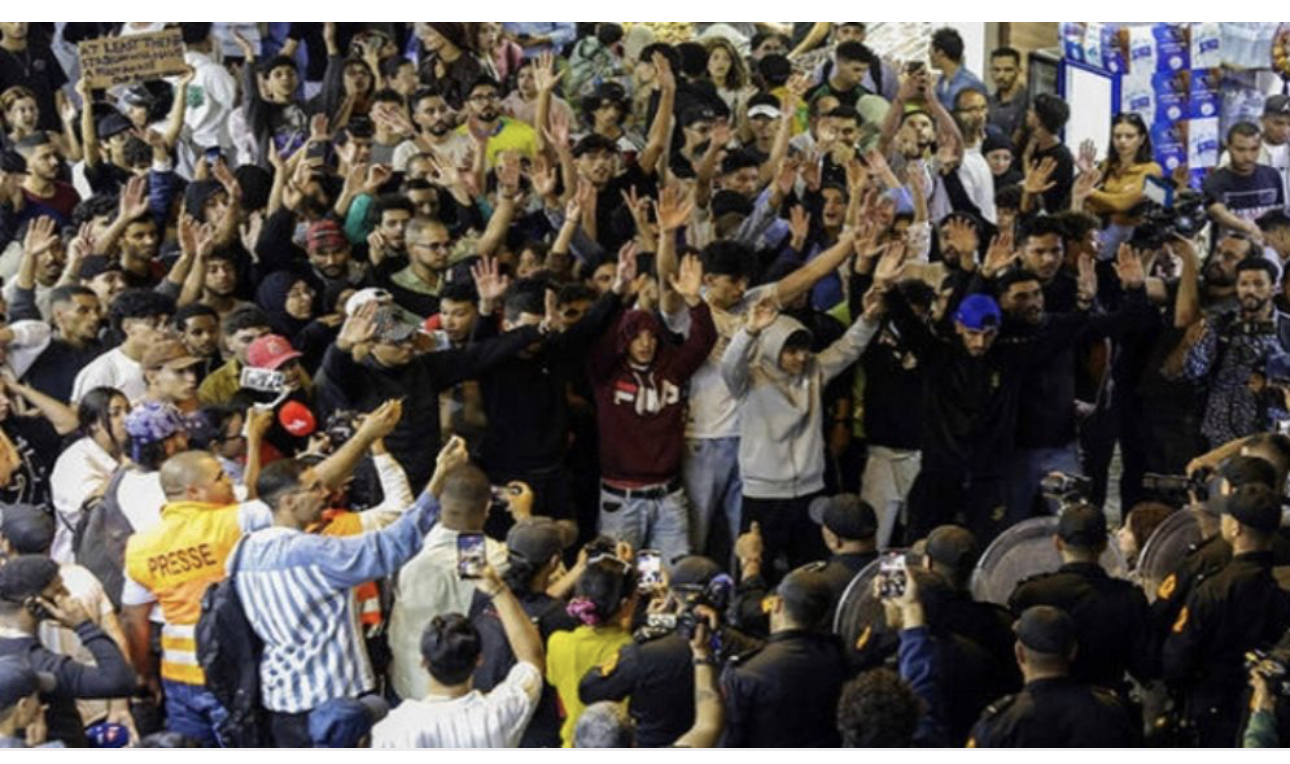The Moroccan government has filed charges against 2,480 people in connection with the recent “Gen Z” protests, marking one of the largest periods of political unrest in the country’s recent history.
According to official data, 1,473 of those accused are currently in custody awaiting trial. The charges against them include participation in an insurrection, assault on government officials, obstruction of state duties, and incitement to criminal acts.
The Spark: ‘Gen Z 212’ and Grievances
The protests were initiated by a youth organization named ‘Gen Z 212,’ which galvanized a nationwide movement to protest government neglect in the education, health, and employment sectors, alongside what they called unnecessary administrative spending.
The group specifically criticized the government for allocating massive funds to build sports infrastructure while allegedly ignoring fundamental sectors crucial for the public.
Violence and Human Rights Concerns
Although the organizers had called for peaceful demonstrations, violence erupted in several cities, leading to:
• Three deaths.
• Numerous injuries.
• Damage to shops and vehicles.
Human rights organizations have strongly criticized the government’s crackdown. The Moroccan Association for Human Rights described the arrests as random and unjust. Hanan Salah, Associate Director at Human Rights Watch, emphasized the severity of the official response, stating:
“The demand of young people for a fair future and opportunities cannot be answered with bullets and repression.”
High-Profile Arrests and Court Proceedings
Among those arrested is Hamza Raed, a popular rapper known for his songs that often express political commentary and the frustrations of the youth. He was detained last month in Casablanca.
In one recent court appearance on Monday, three defendants were brought before a court in the capital. They were charged with insulting a government agency and inciting criminal acts. The accusation is that they allegedly printed protest slogans on the national football team’s jersey. If convicted, they could face up to five years in prison.




